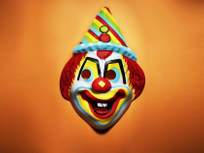Word of the Day
: June 12, 2018epithet
playWhat It Means
1 : a characterizing word or phrase accompanying or occurring in place of the name of a person or thing
2 : a disparaging or abusive word or phrase
3 : the part of a taxonomic name identifying a subordinate unit within a genus
epithet in Context
The school's policy makes it clear that derogatory epithets will not be tolerated.
"Herbert Hoover, who could justifiably campaign as a progressive Republican, pigeonholed Smith as an advocate of state socialism (the same epithet that a spiteful Smith would hurl at Roosevelt in 1936)." — Sam Roberts, The New York Times, 22 Apr. 2018
Did You Know?
Nowadays, epithet is usually used negatively, with the meaning "a derogatory word or phrase," but it wasn't always that way. Epithet comes to us via Latin from the Greek noun epitheton and ultimately derives from epitithenai, meaning "to put on" or "to add." In its oldest sense, an epithet is simply a descriptive word or phrase, especially one joined by fixed association to the name of someone or something (as in "
Test Your Vocabulary
Fill in the blanks to complete a word that refers to the use of an epithet in place of a proper name (as "the Bard" for "Shakespeare"): an _ _ no _ _ s _ a.
VIEW THE ANSWERMore Words of the Day
-
Apr 24
burgeon
-
Apr 23
exodus
-
Apr 22
palpable
-
Apr 21
noblesse oblige
-
Apr 20
gingerly
-
Apr 19
underwhelm











